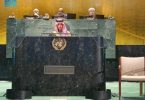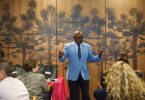(eTN) – As we noted in Unruly airline passengers (eTN April 10, 2014) the pilots of commercial aircraft have the right and responsibility to deny boarding to and/or remove disruptive passengers [see Rubin v. United Air Lines, Inc.]. This is true even if the information upon which the pilots rely is less than accurate [see Ruta v. Delta Airlines, Inc.]. What about a prospective passenger who is denied boarding at the gate, informed that her checked baggage will not be removed from the aircraft but will be waiting for her in Austin, Texas, and, in a moment of anger, states to the gate attendant “what if there was a bomb in my bag?” or “there is a bomb in my bag”. Assuming this alleged language is a joke and without any foundation in reality how should airline, TSA and FBI personnel respond?
The Baez Case
The case, Baez v. JetBlue Airways and Tiffany Malabet, __ F. Supp. 2d__ (E.D.N.Y. July 3, 2014), reinforces what we all should know by now. Don’t ever use the word “bomb” and “gun” while boarding, disembarking or flying on commercial aircraft, in jest or otherwise. This obvious rule of proper passenger etiquette has been known since, at least, 1998 [“See 49 C.F.R. §1544.30 (airline must notify TSA ‘[u]pon receipt of any bomb threat’); In the Matter of Stevens, FFA Order No. 98-24, at 3 (Dec. 18, 1998) (‘[C]laiming one is joking is not a valid defense [under 49 U.S.C. §46302], because Congress designed the statute to prevent the alarm and disruptions that result from false information about a bomb, regardless of whether the false information was intended as a joke’); Dep’t of Transportation News Release, November 22, 1999 (Warning passengers, ‘[d]o not joke about having a bomb or firearm in your possession, Security personnel are trained to react when they hear these words. Penalties can be severe, and can include the possibility of time in prison and/or fines’)”] [Baez, supra].
The Initial Confrontation: Baez’s Version
As noted by the Baez Court “At approximately 6:30 on the morning of April 15, 2008, Baez arrived at JFK for a flight to Austin, Texas scheduled to depart at 8:05 a.m. The ticketing agent did not inform Baez at check-in that the departure gate was located in a separate terminal, and, as a result, Baez arrived at the gate a mere ten minutes prior to the scheduled departure. As Baez approached the gate, Malabet, a JetBlue ticketing agent, emerged from the jet bridge and informed Baez that she had just closed the plane door and, therefore, could not allow Baez to board the plane. Baez, obviously upset with this turn of events, asked about her checked baggage, which was presumably already on the plane. According to Baez, Malabet informed Baez that her bag would remain on the plane and would be waiting for her in Austin. Baez then stated ‘Isn’t that a security risk? What if there was a bomb in my bag?’ Malabet responded ‘If there was a bomb, the SA would have caught it’. Baez then responded ‘TSA my ass’ and walked away (See Am. Compl. ¶¶25-26, Baez Depo. at 199-201.)” [Baez supra].
Malabet’s Version
“Malabet’s recollection of the conversation is hazier. At her deposition, she initially testified that Baez’s version of her own statement was accurate-that Baez ‘stated it as a question’ and that Malabet ‘kn[e]w [that Baez] didn’t make a bomb threat’ (Malabet Depo. At 39, 44). Malabet testified that ‘at [no] point in the conversation did [Baez] ever tell [Malabet] that she had a bomb in her bag’ (Id. At 50. Malabet later shifted course, characterizing her earlier testimony as a ‘a mistake’ and testifying ‘I know [Baez] did state ‘Well, I have a bomb in my bag so you should turn the plane around’ (Id. At 60, 163). However, later in the deposition, Malabet returned to her prior recollection, testifying that Baez never affirmatively stated that she had a bomb in her bag (Malabet Deo. At 77-78, 92-93, 100, 104). In short, throughout her deposition Malabet gives inconsistent and contradictory testimony about the specifics of her conversation with Baez” [Baez, supra].
FBI Interviews
“Shortly after JetBlue had re-booked Baez, Malabet relayed her earlier conversation with Baez to Malabet’s supervisor (who) then called (TSA) to report the incident (and told TSA Officer Elkman Eastman) in sum and substance that Baez told her: ‘There is a bomb in my bag so you should turn the plane around’ (Malabet Depo. At 59-60). At that point, TSA in conjunction with JetBlue decided to re-route the airplane, which had already taken off, to land in Richmond, Virginia rather than Austin. Upon landing police officers searched all of the plane’s passengers and their luggage, but, unsurprisingly, did not find a bomb…TSA located Baez in the terminal and detained her (and) immediately passed custody of Baez to the FBI, and FBI agents interrogated Baez for approximately five hours (and conducted) a separate two-hour interview with Malabet”)[Baez supra].
Question Or Statement?
“Malabet had told the FBI that Baez showed up late to board a plane for which she was a ticketed passenger, that Malabet advised Baez that she could not board the plane but that her checked baggage would remain on-board, and that Baez made the statements ‘What if I had a bomb in my bag?, ‘I have a bomb in my bag’ and ‘TSA does not know how to do their f…… job’ (FBI Report at 1). Critically, the FBI report recorded that Malabet had attributed to Baez both statements-one an interrogatory and the other a declaration-the same statements she ascribed to Baez at her deposition…Malabet also told the FBI that Baez was ‘extremely upset’ during this encounter and that she had spoken in an angry and frustrated manner (and) had made her comments about her checked luggage after being advised the luggage was aboard the flight” [Baez, supra].
Charges, Plea And Disposition
“Following these interviews FBI agents arrested Baez and, ultimately, charged her with making a bomb threat in violation of 49 U.S.C. 46507. As it turned out, the government did not pursue this charge to judgment. Instead, it was dismissed as part of a plea agreement in which Baez pled guilty to a drug crime of having marijuana in her checked luggage…On her plea, Baez was sentenced to three years’ probation and…required a pay JetBlue $13,448.20 in restitution foe costs relating to the original flight’s re-routing. The restitution to be paid to JetBlue, the sentencing court specifically noted, was a ‘consequence of the offense [a bomb threat] alleged in the complaint as opposed to the misdemeanor [drug charges]’ for which she had been convicted (see United States v. Baez, 8-cr-560 (RJM) dkt. #20 at 14). The record recited no objection or appeal taken by Baez from that order. In seeming consequence of her arrest, Baez lost her job as a vice-president for Schematics, where she was earning $190,000 per year” [Baez, supra].
The Immunity Defense
The details of the claims set forth in the Baez lawsuit are discussed as well in an earlier decision on defendant’s motion to dismiss [see Baez v. JetBlue Airways, 745 F. Supp. 2d 214 (E.D.N.Y 2010)]. Of importance here, however, is the immunity defense raised by defendants who contended that “whether Baez said ‘what if there was a bomb in my bag?’ or ‘there is a bomb in my bag’ or made both statements as the FBI report reflects, either or both statements were sufficiently suspicious to justify Malabet warning TSA and FBI that Baez was a potential security theat. Such nexus, they claim, provides JetBlue and Malabet with immunity from civil liability arising out of the statements Malabet made to TSA and the FBI about Baez”.
ASTA Immunity
The Aviation and Transportation Security Act (ASTA) provides that “‘[a]ny air carrier…or any employee of an air carrier… who makes a voluntary disclosure of any suspicious transaction relevant to a possible violation of law or regulation, relating to air piracy, a threat to aircraft or passenger safety, or terrorism…to any employee or agent of the Department of Transportation, the Department of Justice, any Federal, State or local law enforcement officer, or any airport or airline security officer shall not be civilly liable…’ 49 U.S.C. §44941(a)” [Baez supra].
JetBlue And Malabet Immune
In granting summary judgment for JetBlue and Malabet the Baez Court stated that “After reviewing all of the evidence, the FBI decided to charge Baez with making a false bomb theat. Contrary to Baez’s contention, this charging decision cannot be attributed to a parsed difference in words spoken by Malabet during the course of a two-hour interview, in which, overall, she accurately relayed how Baez had spoken the word ‘bomb’ at the jetway leading to a departing flight containing g luggage referenced in the same statement as the word ‘bomb’….under these facts, JetBlue and Malabet was entitled to immunity as a matter of law under 49 U.S.C. §44941(a)…ATSA immunity was created to encourage airline personnel to freely report even snippets of conversations relating to potential bomb threats…and for TSA and the FBI, but not the airline or its employees, to assess the theat. An airline passenger who angrily confronts an airline boarding agent in one of the world’s busiest air terminals and uses the words ‘bomb’ and ‘luggage’ and disparages the TSA’s ability to detect such threats cannot be heard to complain when the boarding agent honestly reports the use of those words, even if in some of the telling misrepresentations by omission might have been given” [Baez supra].
Conclusion
Be very careful what language you use boarding, disembarking or flying on commercial aircraft.
The author, Justice Dickerson, been writing about Travel Law for 38 years including his annually-updated law books, Travel Law, Law Journal Press (2014), and Litigating International Torts in U.S. Courts, Thomson Reuters WestLaw (2014), and over 300 legal articles many of which are available at www.nycourts.gov/courts/9jd/taxcertatd.shtml .
This article may not be reproduced without the permission of Thomas A. Dickerson.






















